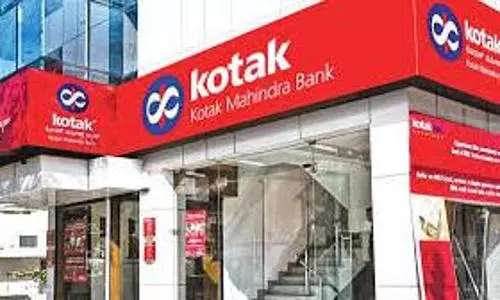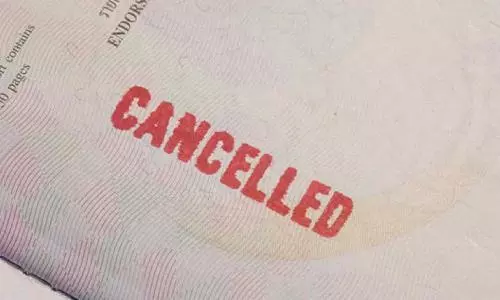
Ram temple be built at Ayodhya, mosque in Lucknow: Shia Board
text_fieldsNew Delhi: The Uttar Pradesh Shia Central Waqf Board has submitted before the Supreme Court a proposal for settlement of the decades-old dispute over the Ram Janmabhoomi-Babri Masjid site, saying a temple can be built in Ayodhya and the mosque could be raised in Lucknow.
The board has told the top court that peaceful settlement between the parties was in "national interest" and would bring about harmony between Hindus and Muslims in the country.
In an application seeking to file settlement proposal, the board has claimed that they being the rightful owner of the disputed property were ready to give up "all the rights" over the land to pave the way for construction of Ram Mandir.
The board also said that to end the dispute, the state government shall also cooperate and allot one acre of land to the Shia community to construct a new Masjid outside Ayodhya, in Lucknow.
"Respecting such faith of Hindu community, the UP Shia Central Waqf Board, in the larger interest of nation, is ready to give up its all rights over the Babri Masjid land, a shia waqf for construction of Shri Ram Mandir with a view to bring an end to the dispute," the board has said in its proposal.
It said that they had taken the initiative and held discussions with "non-Muslim stake holders" in the matter and accused the Uttar Pradesh Sunni Central Waqf Board of "wrongly staking its claim on the Babri Masjid".
The Shia board also claimed that the mosque built on the disputed land was a Shia mosque and, on the basis of evidence, it has been established that its last 'mutawalli' (a trustee of waqf) was a Shia Muslim.
It said the Sunni board's February 22, 1944 notification wherby they recorded the Babri mosque as Sunni Waqf has been held invalid by the court.
"Keeping in view to resolve the mandir-masjid dispute, the government of UP shall also cooperate and out of nazul land lying vacant in Mohalla Hussainabad in front of Ghantaghar, Lucknow, allot one acre land to Shia community for constructing new masjid outside the religious peripheries of Ayodhya and for that purpose UP Shia Central Waqf Board has already made a written request to the UP government," the board said.
The application said that even in Islamic countries, mosques have been removed.
"In the national interest, the peaceful settlement between the parties will bring in harmony between Hindus and Muslims and country can be saved of communal conflicts in the future," it said.
The Shia board said it had held a series of meetings and discussions with several Hindu stakeholders, including Presidents of the Ram Janmabhoomi Nyas and All India Akhada Parishad, and a compromise has been arrived at between them. It had sought the apex court's permission to submit the settlement proposal.
Earlier too, the Shia Board had offered a solution saying that a mosque could be built in a Muslim-dominated area at a "reasonable distance" from the disputed Ayodhya site.
However, its intervention was opposed by All India Sunni Waqf Board which had claimed that judicial adjudication between the two sects had already been done in 1946 by declaring the mosque, which was demolished on December 6, 1992, as the one which belonged to the Sunnis.
The apex court had on August 11 said it would commence the final hearing in the long-standing Ram Janmabhoomi-Babri Masjid title dispute from December 5, a day before the 25th anniversary of the demolition of the medieval-era structure.
The court had reached a consensus on commencing the hearing on a total of 13 appeals filed against a 2010 judgement of the Allahabad High Court in four civil suits. The high court had ruled a three-way division of the disputed 2.77 acre area at Ayodhya among the parties -- the Sunni Waqf Board, the Nirmohi Akhara and Lord Ram Lalla (deity).
A three-judge bench of the Allahabad High Hourt, in a 2:1 majority ruling, had said the land be partitioned equally among three parties -- the Sunni Waqf Board, the Nirmohi Akhara and Ram Lalla.























